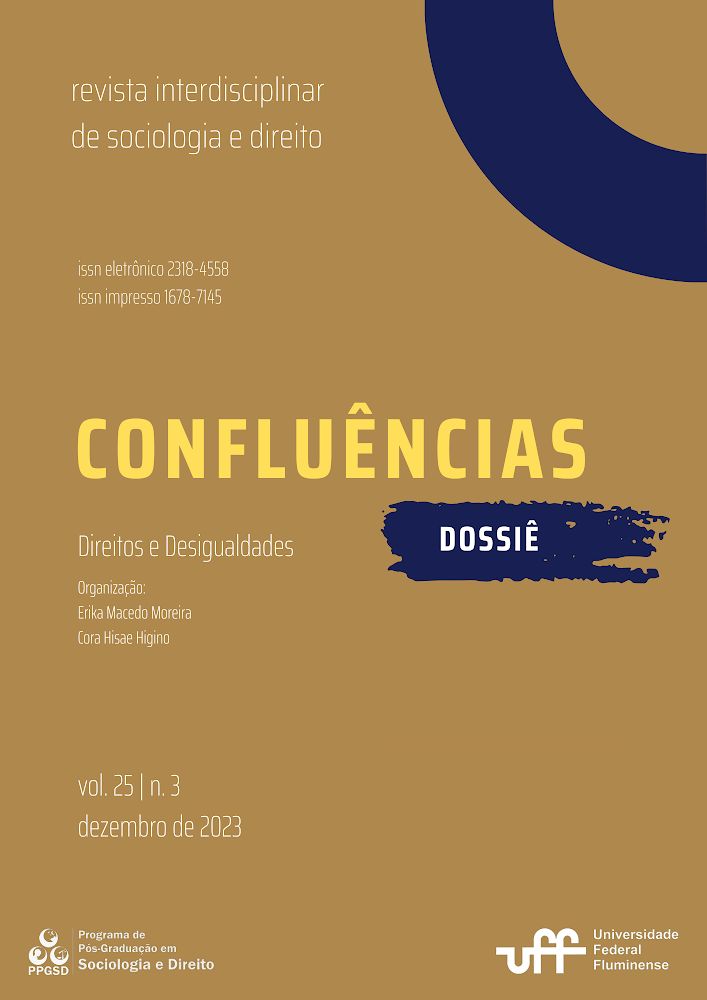AÇÕES PEDAGÓGICAS DE CIDADANIA
uma nova função do judiciário para combater as desigualdades?
DOI:
https://doi.org/10.22409/conflu.v25i3.59978Abstract
The function of the judiciary has gone beyond the instrumental function: it is political and symbolic. Thus, analyzing its function in the 21st century implies highlighting the need for greater contact with society. Judiciary policies on access to justice and rights must involve actions that promote rapprochement between judges and the social context. This approach can be guaranteed by pedagogical citizenship actions that give society access to rights and justice, as well as allowing judges to understand the social problems they will judge. This article is a report on the experience of pedagogical citizenship actions promoted by the Federal Court of Rio de Janeiro in Complexo do Alemão and Cidade de Deus with the community, analyzing the overlap between public judiciary and public security policies. The extent to which this “participatory pedagogical justice” promotes emancipation or social regulation is discussed. The study found that, from this tension, three dimensions emerge that must be analyzed regarding the Judiciary's performance based on non-formal education policies to promote access to justice and rights: the role of the Courts in contemporary societies, legal pluralism and the concept of access to rights and justice. Such experiences have made it possible to expand the right to education for all, combating inequality. Pedagogical citizenship actions in these social segments can allow the Judiciary to also participate in the fight against inequalities. It concludes by discussing under what conditions such actions allow for a rapprochement with society and the problems that will be judged.
Downloads
Downloads
Published
Issue
Section
License
Copyright (c) 2023 Vladimir Santos Vitovsky

This work is licensed under a Creative Commons Attribution-NonCommercial 4.0 International License.







